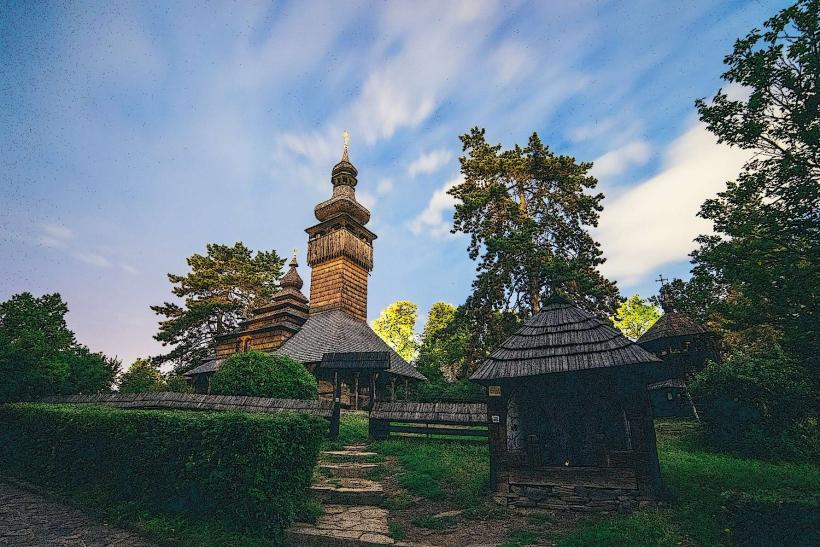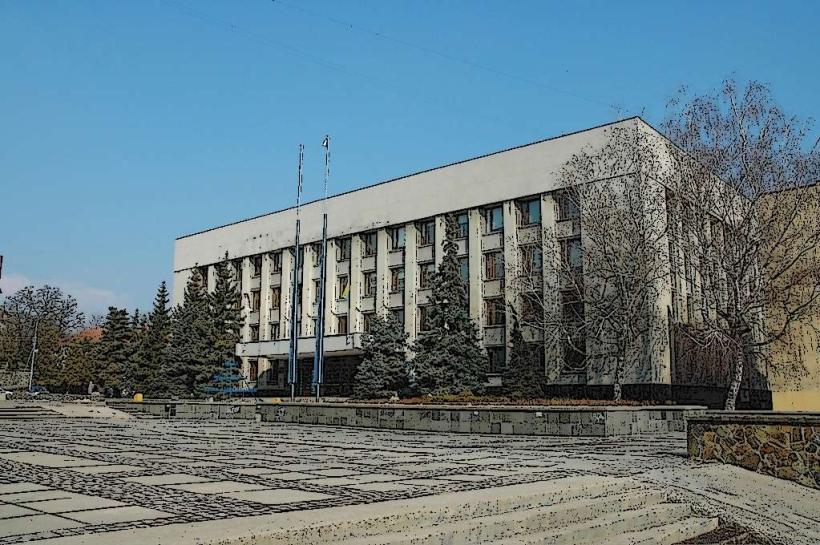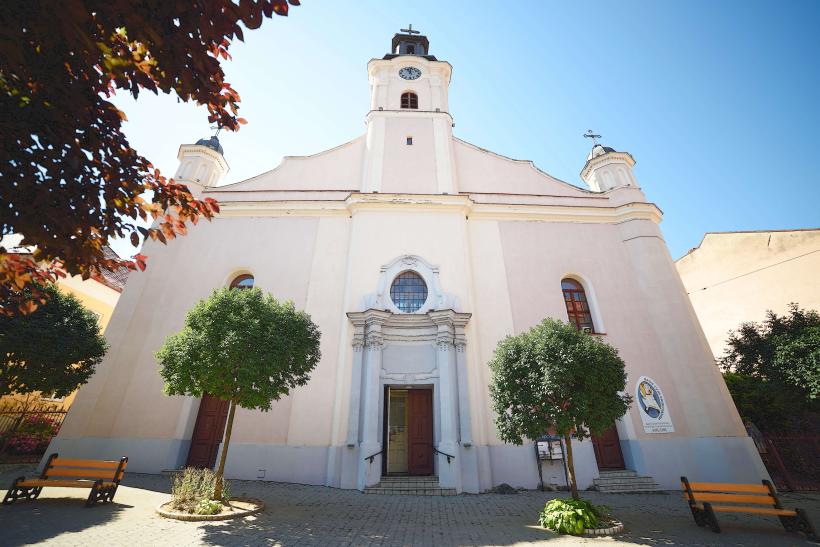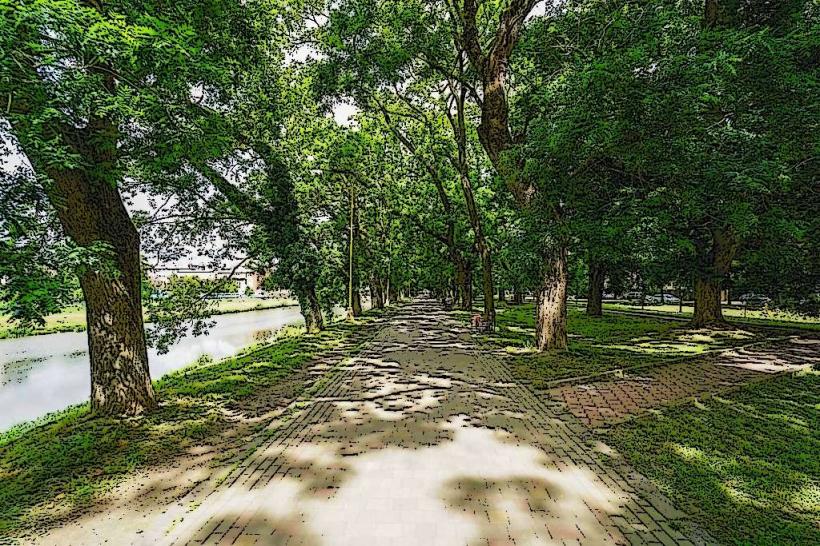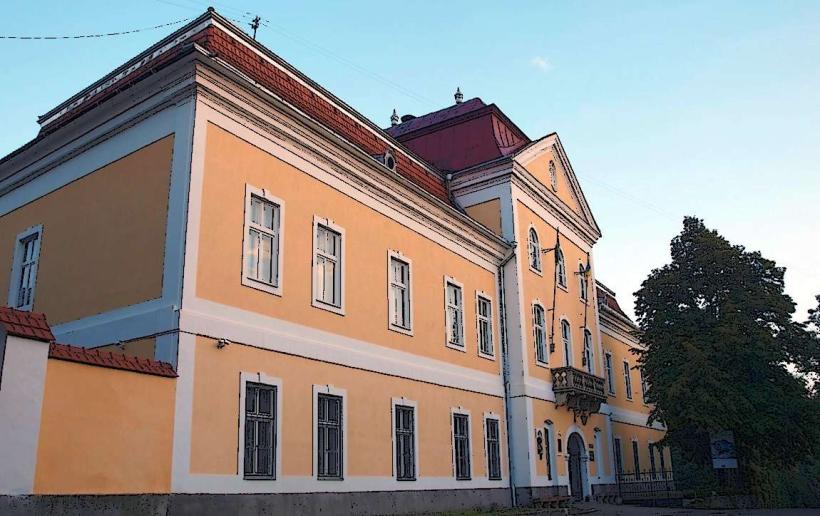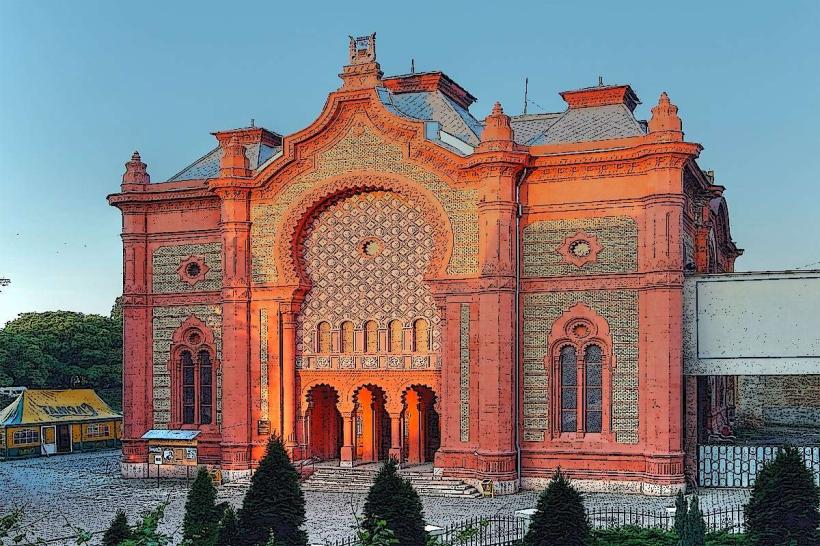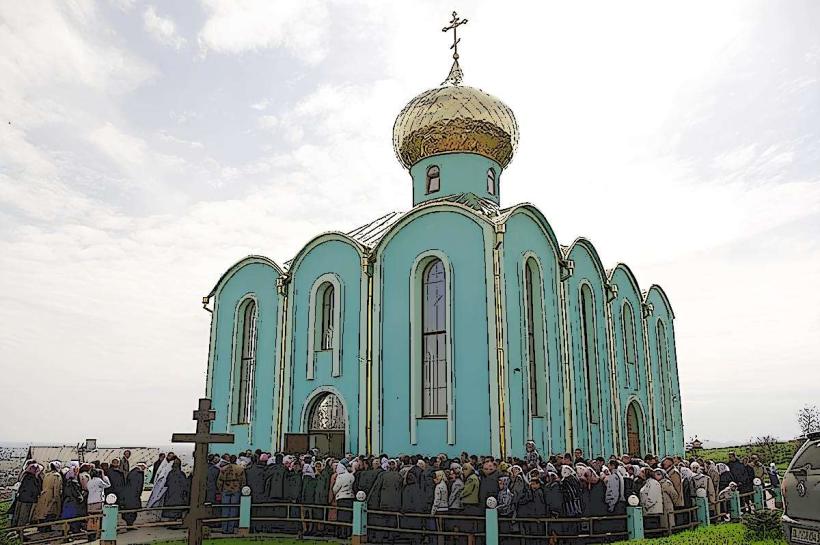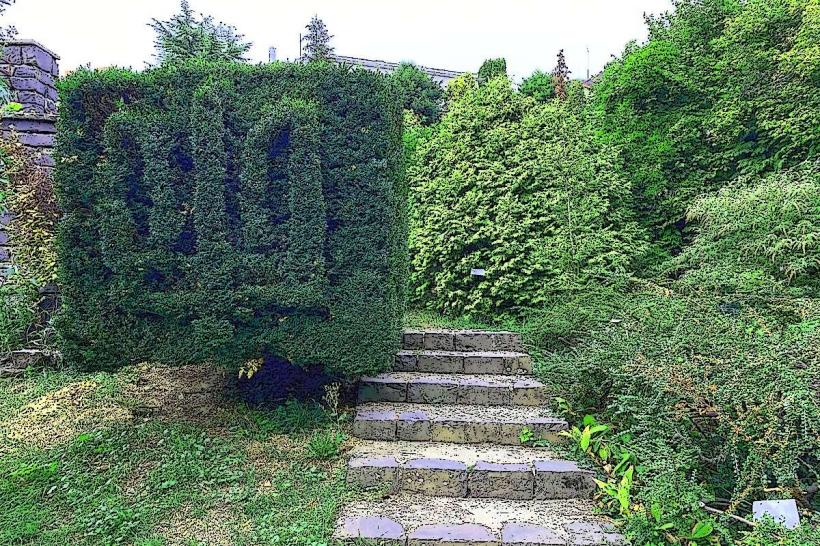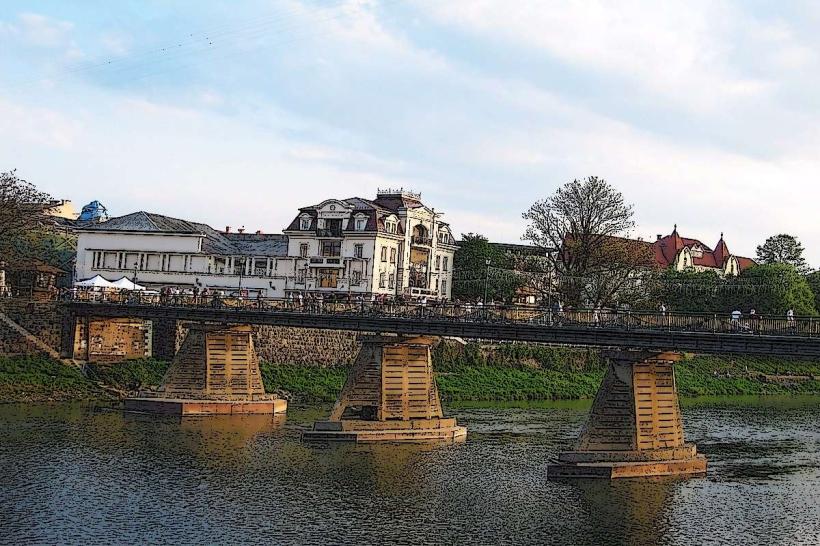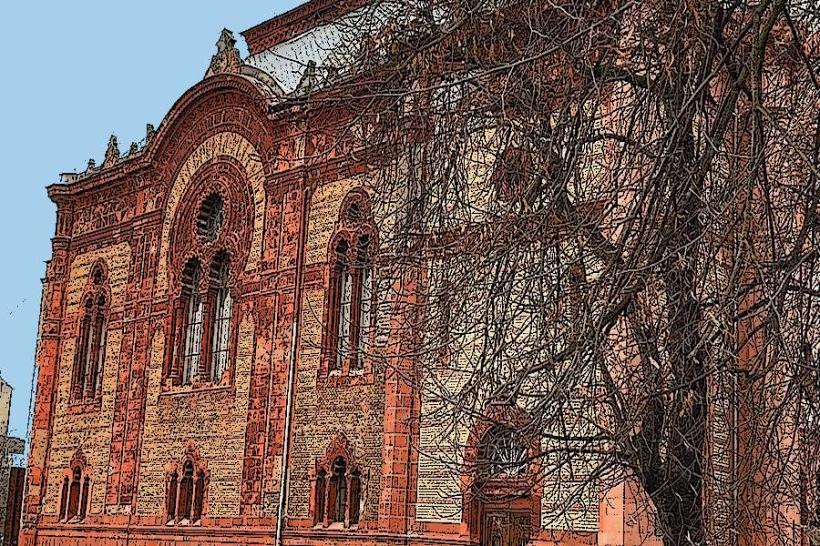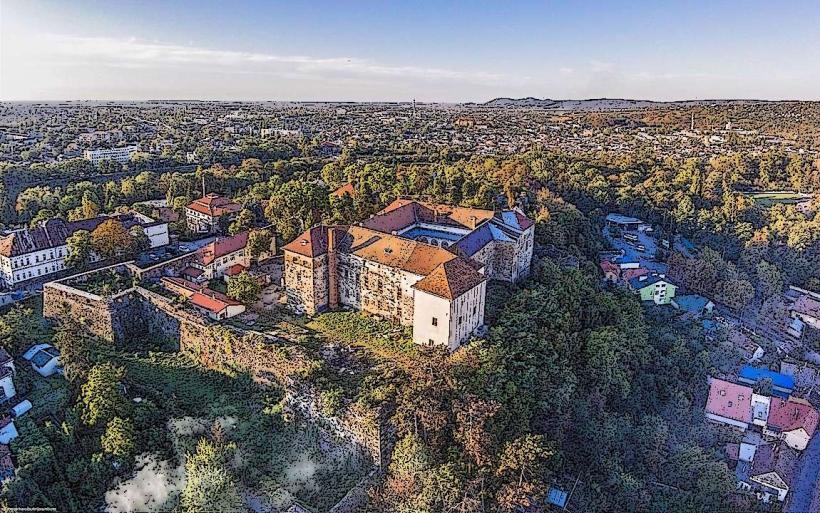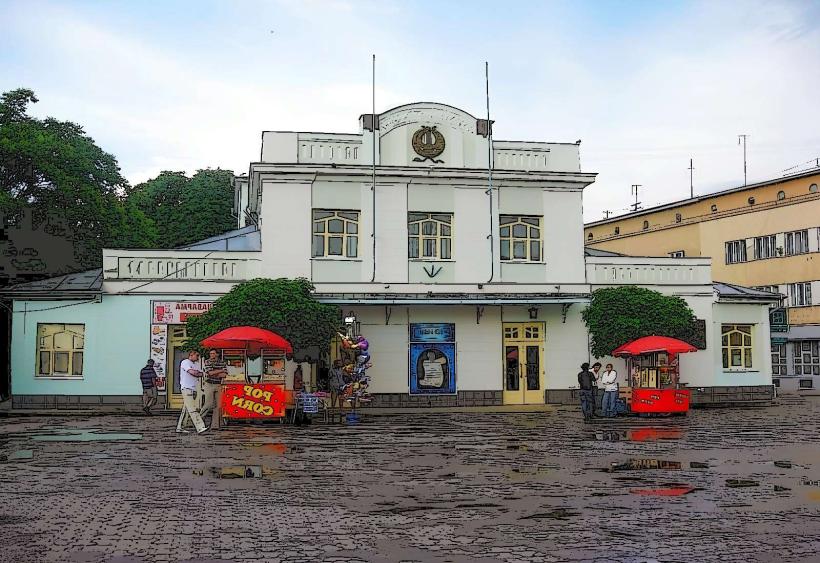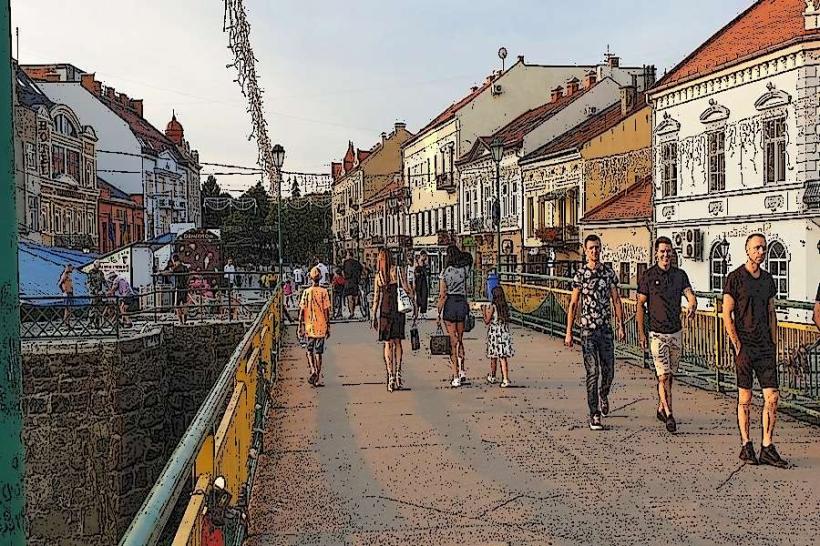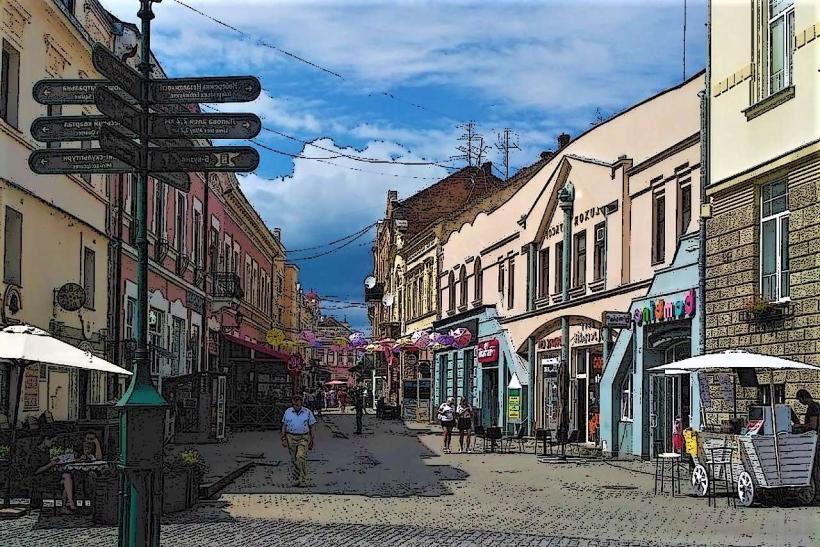Information
Landmark: Uzhhorod CastleCity: Uzhhorod
Country: Ukraine
Continent: Europe
Uzhhorod Castle, Uzhhorod, Ukraine, Europe
Uzhhorod Castle is a historical fortification situated in Uzhhorod, Ukraine. It is a prominent example of medieval defensive architecture in the Transcarpathian region.
Visual Characteristics
The castle is constructed primarily from stone, with sections of brickwork visible in later additions. Its walls are substantial, averaging 2 meters in thickness. The main structure consists of a central keep, surrounded by an outer defensive wall with bastions at each corner. The rooflines are predominantly pitched, covered with red tile. The overall architectural style reflects a blend of Romanesque and Gothic influences, with later Renaissance modifications.
Location & Access Logistics
Uzhhorod Castle is located at Zamkova Street, 1, in Uzhhorod. It is approximately 1.5 kilometers from the city center. Access is via Zamkova Street, which is a paved road. Parking is available in a designated lot adjacent to the castle entrance. Public transport options include bus routes 1, 2, and 5, which stop within a 500-meter walk of the castle. Trolleybus line 2 also serves the area.
Historical & Ecological Origin
Construction of Uzhhorod Castle began in the 10th century, with significant rebuilding and expansion occurring in the 13th and 16th centuries. The original purpose was defensive, serving as a strategic stronghold for regional rulers. The castle is built on a natural elevation, a volcanic hill, which provided an inherent defensive advantage.
Key Highlights & Activities
Visitors can explore the castle ramparts, offering views of the surrounding city and the Uzh River. The castle houses the Transcarpathian Museum of Local Lore, which includes exhibits on archaeology, ethnography, and natural history. Guided tours of the castle grounds and museum are available. Photography is permitted within the castle complex.
Infrastructure & Amenities
Restrooms are available within the museum building. Limited shaded areas are present within the castle courtyards. Cell phone signal (4G) is generally reliable within the castle grounds. Food vendors are not located directly within the castle, but numerous cafes and restaurants are situated within a 1-kilometer radius in the city center.
Best Time to Visit
For optimal lighting for photography, the late morning (10:00 AM - 12:00 PM) and late afternoon (3:00 PM - 5:00 PM) offer favorable conditions. The best months for visiting are from May to September, when weather is typically mild and dry. No specific tide requirements apply.
Facts & Legends
A local legend claims that the castle's well is bottomless, and that a dragon guards its depths. Historically, the castle served as a residence for the Drugeth family, a powerful noble dynasty in the region for centuries.
Nearby Landmarks
- Uzhhorod Greek Catholic Cathedral (0.7km Southwest)
- Pedestrian Bridge (0.9km Southwest)
- Korzo Street (1.1km Southwest)
- Uzhhorod Botanical Garden (1.3km West)
- Transcarpathian Regional Art Museum (1.2km Southwest)

